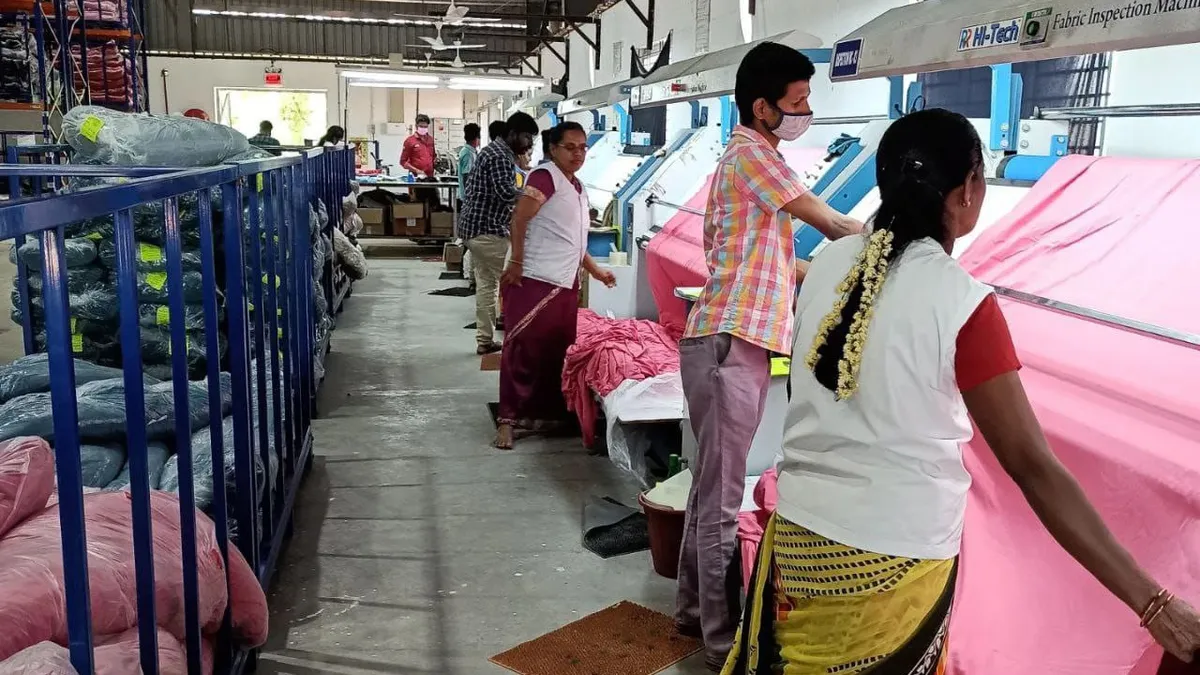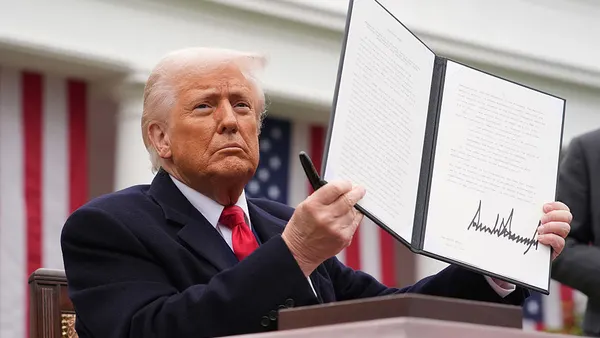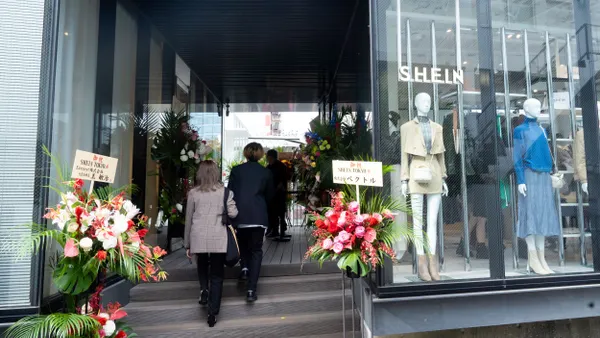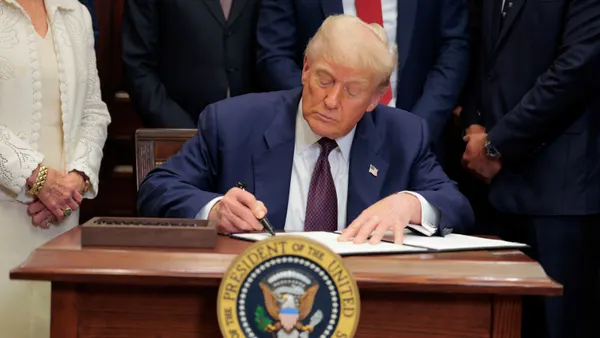Dive Brief:
- One year after signing the Dindigul Agreement in India, 98% of reported grievances at clothing and textile manufacturer Eastman Exports were resolved, according to a report from the Asia Floor Wage Alliance released last week.
- The agreement, which aimed to end gender-based violence and harassment for garment workers in Dindigul, India, is between the women- and Dalit-worker led union TTCU and Eastman Exports, one of the largest manufacturers in the region, and a supplier to companies including H&M Group.
- The collaboration between the union, Eastman and the brand represents the first “enforceable brand agreement” in India, “in which multinational companies legally commit to labor and allies to use their supply chain relationships to support a worker- or union-led program at certain factories or worksites.”
Dive Insight:
Apart from H&M, brands including Gap Inc. and PVH Corp. — the owner of Calvin Klein and Tommy Hilfiger, among others — have signed onto similar agreements later in 2022.
The Dindigul Agreement impacts more than 5,000 workers at Eastman-owned Natchi Apparel and Eastman Spinning Mills. According to the AFWA, nearly all the workers in these units are both women and also Dalit, meaning they were born into the lowest rung of Hinduism’s caste system.
The data collected show that 185 workers reported grievances at the Eastman facilities between April 2022, when the agreement was signed, and December 2022.
Women filed 96% of complaints, and data shows that 90% of those were resolved in a week.
"The agreement has created a space of social dialogue between the union and the management of Eastman Exports. This has enabled us to help both workers and management improve working conditions as well as the efficiency of production. Transparent conversations are happening between management and workers– leading to fewer conflicts, mature industrial relations and improved trust and confidence in management among workers,” Thivya Rakini, TTCU President, said in the release.
When signed, the agreement implemented AFWA’s safe circles approach, which is a worker- and union-led training, monitoring, and remediation program. The agreement prohibits retaliation against any worker for participating in the agreement. It also requires Eastman to explicitly ban gender-based violence and harassment.
"The Dindigul Agreement is set to revolutionize the fashion world, serving as an important milestone on the path to dignified and violence-free workplaces in an industry with a largely-female workforce,” Abiramy Sivalogananthan, South Asia coordinator for the Asia Floor Wage Alliance, said in an email. “It will establish a paramount standard for safe work environments, free from all forms of discrimination and gender-based violence. Moreover, a successful first year of implementation with up to 98% of total grievances resolved, including all GBVH cases, is an indicator of the success of this landmark agreement. It guarantees the fundamental right of freedom of expression, empowering workers and fostering trust in the management. The agreement will undoubtedly shape the future of fashion, promoting inclusivity, dignity, and equality for all."
Labor rights and other protections for garment workers have been getting increased attention recently. In Bangladesh, garment workers and unions are calling for an increase to minimum wage requirements before the government makes a decision on it before the end of the year.
Last week, the president of the Bangladesh Garment and Industrial Workers Federation Gazipur district committee, Shahidul Islam, was allegedly beaten to death after he visited a factory in Gazipur, seeking to secure unpaid wages for the factory’s workers, according to a report from Human Rights Watch.











